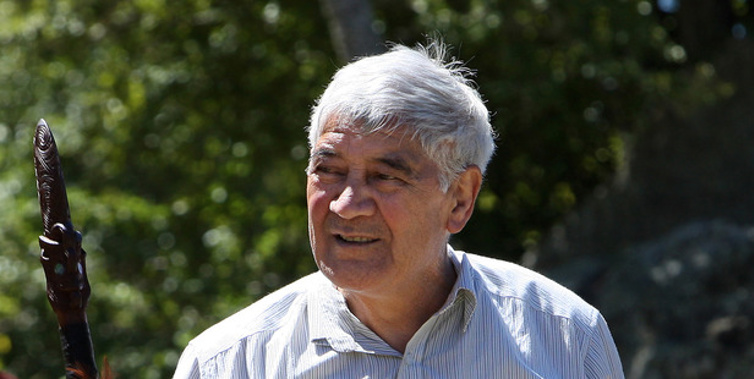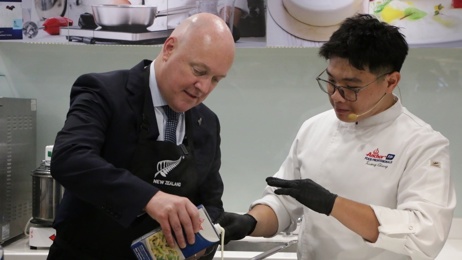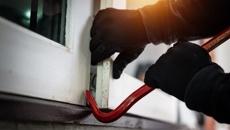
Mita Mohi was laid to rest today after three days at Tarimano Marae near Rotorua. He is a man for whom many in the Maori community hold with the highest regard for his work as a JP, a member of the Parole Board, but most famously as the founder of the Mau Rakau Wananga on Mokoia Island.
Newstalk ZB's Matiu Workman recalls his own experience as a nervous student of a man he's held in high regard ever since.
It was a cold, cloudy day as my father and I, a youngster no older than 10, boarded the ferry from Rotorua to Mokoia Island for a mau rakau course.
On that trip, nerves began to rise. Around 100 boys and men were heading to the same course, all a little unsure of what to expect on a sacred Te Arawa island. A taonga, or treasure.
When we arrived, a man whose hair was dusted with a touch of white eagerly welcomed us. Mita Hikairo Mita, a man we would all know as Koro Mita.
His life, even prior to the wananga, had been filled with significant sporting achievements. Mohi had the discipline that saw him become a nationally ranked Greco-Roman wrestler, he had the talent leading him to become a New Zealand rugby league international in the 1970s, and he had a deft touch that saw him become one of our leading Maori tennis players. None of the students on the island knew any of these achievements, though. To us, he was someone else. He was Koro Mita.
Hawaiiki Tu! Mangopare! Mangopae! Toropaepae!
The opening mau rakau stances
The three-day course was intensive. We were taught the initial stances, and before we knew it we were learning a number of intricate attacking and defensive positions. Koro Mita often helped with the experienced classes, while others taught the juniors. One thing rang true for every student on the island – everyone was to be treated equally, starting with the daily morning runs up Mokoia Island.
Mita’s influence on the group became apparent in how hard we trained over those three days. He was the grandfather whose approval we had all sought, a man who inspired us to train hard.
A gifted storyteller, Mita entranced us with stories over the course of the wananga. The love story between Hinemoa and Tutanekai, and the significance of Mokoia Island and Lake Rotorua, continue to stick me almost 20 years on.
We returned to the Rotorua mainland after the family open day as men who had been given a greater grasp on using taiaha. However, mau rakau was simply a vehicle that helped us learn wider aspects of our culture away from the distractions and intrusions of modern life. His impact on the tens of thousands of students who have treaded on the sacred Tinirau grounds for the wananga is significant.
For most students, the end of the wananga meant their contact with Koro Mita was done. Thankfully, that wasn't the case for me. I caught up with him a number of years ago, and can distinctly remember an infectious smile that complemented his gentle personality. He spoke with a warm tone in his voice that could be put down to Father Time, and a fond love of seafood chowder.
Not many people would have been able to create peace by using taiaha, a weapon traditionally used in armed conflicts, but Koro Mita wasn’t like most people. His demeanour, philosophy and determination to help children and men of all ages and backgrounds, led them to a greater understanding of their culture regardless of their background.
Whakatā
Rest
The last movement we were taught at the mau rakau course was whakata, to be at ease. The time has come for Koro Mita to rest and be reunited with his beloved wife Hukarere for the first time since 2008.
E te kauri o te ngāhere,
Ka mamae te manawa,
Kia whakatā, kia wheturangitia,
Me noho ki roto io matau ngakau.
To the kauri tree of the forest,
The heart is hurting,
Rest, live amongst the stars,
And live on in our spirit.
Take your Radio, Podcasts and Music with you









